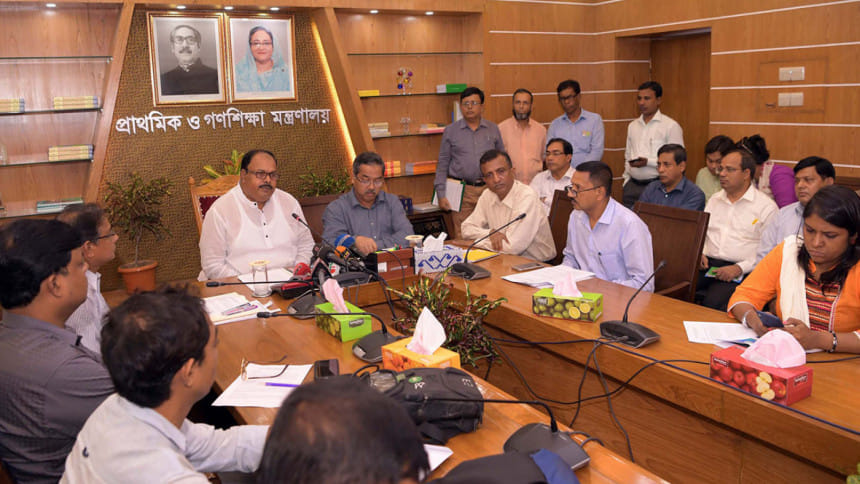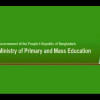No exam up to class III from 2021

The government’s decision to scrap examinations up to grade three at the primary level will be implemented from 2021, said Primary and Mass Education Ministry Secretary Akram-al-Hossain yesterday.
“There will be no traditional exams -- first, second term or yearly -- up to class III. The students will be assessed in their classes throughout the year,” he told reporters in reply to a query at a press briefing to mark the International Literacy Day at the Secretariat.
He said students will also be evaluated on their overall performances like etiquette, manner and discipline at school.
Earlier in March, the ministry had announced that students of classes I, II and III would not require to sit for any examinations starting from this year.
The ministry took the decision following a directive from Prime Minister Sheikh Hasina to abolish exams for students of the aforementioned classes.
Currently, students of these grades need to take several exams, including a final test, to complete an academic year.
Yesterday, the secretary said the system would be introduced at 100 primary schools next year on a pilot basis, in which there will be no traditional exams. He added that a new academic curriculum would be introduced at the primary level from 2021.
There are more than 65,500 government primary schools in the country where no admission test is held for students.
Speaking on literacy, Primary and Mass Education Minister Zakir Hossain said the literacy rate is currently 73.9 percent in the country. The rate was 53.5 percent in 2005.
With the theme “Literacy and Multilingualism”, the International Literacy Day will be observed in the country and around the world on September 8 with the objective of raising awareness on the serious consequences of illiteracy and the importance of universal education.

 For all latest news, follow The Daily Star's Google News channel.
For all latest news, follow The Daily Star's Google News channel. 







Comments